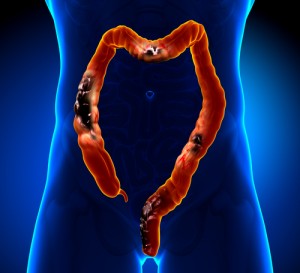 Most of the patients in the United Kingdom suffering from ulcerative colitis (UC) are not fully satisfied with the treatment their are receiving, and almost half of the patients regret they did not have more information before undergoing colectomy procedures, according to the results of a recent survey conducted by the Crohn’s and Colitis UK foundation. Among the flare-ups experienced, fatigue is among the most persistent and inconvenient side effect of the invasive procedure.
Most of the patients in the United Kingdom suffering from ulcerative colitis (UC) are not fully satisfied with the treatment their are receiving, and almost half of the patients regret they did not have more information before undergoing colectomy procedures, according to the results of a recent survey conducted by the Crohn’s and Colitis UK foundation. Among the flare-ups experienced, fatigue is among the most persistent and inconvenient side effect of the invasive procedure.
The foundation conducted the survey online, and 684 UC patients responded, 75% of which were women between the ages of 25 and 39 years old. Nine percent of the patients had been treated with a colectomy, and 47% had been hospitalized during the last five years. The researchers concluded that only 35% of the respondents were completely satisfied with their treatments and from the group that underwent colectomy, 46% of them wished they have asked for more information on therapeutic options.
“Biological therapies offer hope to people with ulcerative colitis for whom conventional therapies are failing to control symptoms, not only so that surgery may be avoided, but so they can resume their lives,” said the Director of Policy and Research at patient charity Crohn’s and Colitis UK, Helen Terry, in response to the results about patients’ dissatisfaction with the course of treatment they are receiving.
In addition, of the patients treated with colectomy, 74% experienced fatigue, 54% abdominal pain, and 33% diarrhea in the last two years. That group reported experiencing six or more flare-ups than the group who did not undergo that therapy, with fatigue being the most difficult symptom to deal with, according to 73% of the patients who responded the survey, which was supported by Merck Sharp & Dohme and administered by Kantar Health.
“Although many people with ulcerative colitis will respond well to conventional therapies, there will always be a subset of those who fail to respond to these treatments and alternative choices to surgery are needed,” stated Chris Probert, MD, FRCP, professor of gastroenterology at the University of Liverpool, honorary consultant gastroenterologist at Royal Liverpool Hospital, chair of the IBD Committee for the British Society of Gastroenterology and vice-chair of the Clinical Advisers Committee for Crohn’s and Colitis UK.

